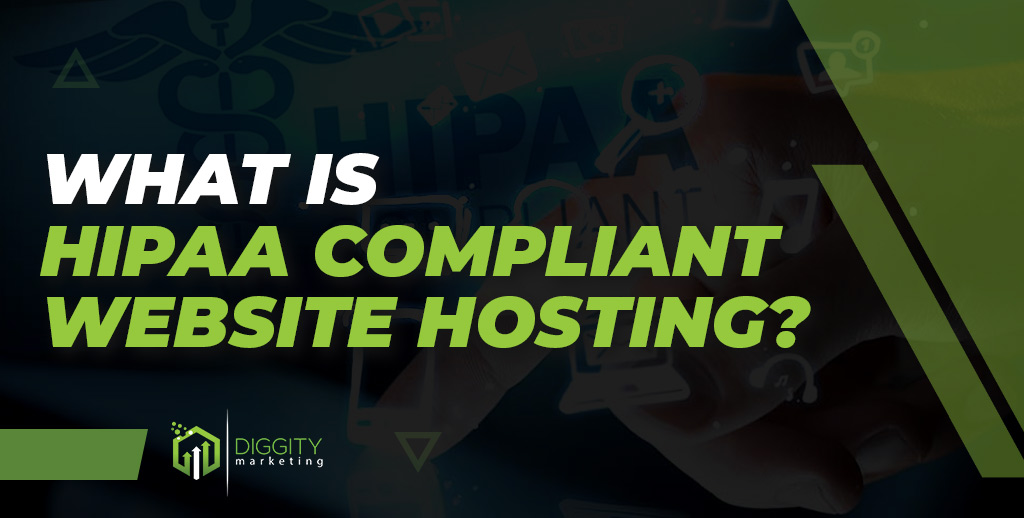Healthcare services are at the mercy of regulatory agencies.
As a seasoned professional in the digital sector, I understand the critical importance of adhering to regulatory standards when providing this kind of service. Navigating the complex landscape of legislation and compliance is essential to avoid dire consequences for your business.
Without proper observation of legislation and compliance standards, the consequences for your business can become dire.
Before we explore what you need to know about providing healthcare online, let’s answer the question “what is HIPPA compliant website hosting?”.
But before we dive into the top providers, let’s define some terms.
Table Of Contents
- Compliance With HIPAA
- Audits Under HIPAA
- HIPAA Penalties
- Entities Covered By HIPAA
- HIPAA Certification
- HIPAA Security Requirements
- HIPAA-Compliant Hosting
- 1. Atlantic.Net
- 2. Amazon Web Services (AWS)
- 3. Armor (FireHost)
- 4. TrueVault
- 5. The VMRacks (HIPAA Vault)
- Honorable Mention: Liquid Web
- Frequently Asked Questions (FAQs)
- Conclusion
Compliance With HIPAA
The Health Insurance Portability and Accountability Act (HIPAA) is a United States law.
It sets the standards for protecting sensitive data.
In addition, it requires certain technical safeguards that protect healthcare data.
These include how electronic media is stored, accessed, transmitted, and destroyed.
When looking for a HIPAA-compliant hosting solution, ensure they meet all legal requirements.
If you’re a covered entity looking for HIPAA-compliant hosting, know that the compliance responsibility falls on you. If your HIPAA hosting provider fails to maintain compliance, penalties will be assessed against you, the “covered entity.”
Audits Under HIPAA
Health and Human Services (HHS) implemented a pilot audit program in 2009. The third-party audit assesses compliance for 113 covered entities of various types and sizes.
Additionally, the audit assessed compliance with the HIPAA Privacy, Security, and Breach Notification Rules. The selected group of entities was to demonstrate their systems of compliance.
The information and data from the audit program were used to create helpful resources for healthcare organizations trying to become compliant.
HIPAA Penalties
Noncompliance with HIPAA can result in significant fines and penalties.
The amount of the fine depends on various factors.
These include the severity of the HIPAA violations and how many people were affected.
It also consists of the entity’s past offenses.
Penalties for HIPAA violations can be quite severe. However, it greatly depends on the severity of the breach and if it was willful.
Criminal charges and jail time can be imposed for non-willful HIPAA violations. However, most penalties are financial.
The Office of Civil Rights (OCR) has the authority to issue fines up to $1.5 million per violation. In exceptional cases, they have issued fines above this amount.
HIPAA regulations apply to the handling of Protected Health Information (PHI). Organizations must select a HIPAA-hosting service that ensures compliance.
Entities Covered By HIPAA
A HIPAA-covered entity is a healthcare provider who works directly with patients. This includes care facilities, clinics, and hospitals. It also consists of any business associates with access to patient data.
A business associate is an entity that provides services to or for the covered entity. Examples include medical billing companies and any HIPAA-compliant hosting service.
The term also includes subcontractors of the business associate. Any organization that has access to PHI must be HIPAA compliant.
HIPAA-covered entities are responsible for establishing a contractual relationship with business associates.
The contract is known as a Business Associate Agreement (BAA). It establishes PHI expectations and obligations for both parties.
HIPAA Certification
The Department of Health & Human Services (HHS) is the federal agency responsible for HIPAA oversight. It ensures that health care providers follow established rules for accessing, storing, transmitting, or otherwise using PHI.
There are a variety of requirements that must be met to become HIPAA certified, including, but not limited to:
Implementing appropriate security measures
Training employees on how to handle PHI securely
Developing policies and procedures related to HIPAA compliance
Having an incident response plan
The federal government has not mandated that healthcare service providers be HIPAA certified.
However, today, many healthcare providers are looking for HIPAA-compliant hosting.
Healthcare service providers choose to be HIPAA certified because it’s seen as a best practice. In addition, it shows a commitment to data security.
There are many courses available on the topic of HIPAA compliance. Most of them are endorsed by healthcare providers themselves.
Web hosts that want to become HIPAA compliant must meet some very stringent security requirements.
HIPAA Security Requirements
The HIPAA Security Rule establishes national standards for securing electronic protected health information. It applies to healthcare clearinghouses, healthcare providers, and health plans.
The standard requires organizations to take steps to protect PHI from unauthorized disclosure, use, access, destruction, or alteration.
There are various ways to achieve compliance with the HIPAA Security Rule. Many organizations turn to HIPAA-compliant hosting providers for assistance.
These are put into place to reach the required level of security for PHI. They include risk analysis and mitigation, data encryption, access control, and workforce training.
HIPAA Compliance Checklist
Here’s a quick checklist. We’ll go into further detail later in the article.
Business Associate Agreements (BAA)
A BAA outlines the specific measures both you and your HIPAA-hosting provider will take to ensure HIPAA compliance. Have everyone in your company network that has access to sensitive information or electronic media sign a business associate agreement.
HIPAA Security Checklist
Go through a list of items you can systematically address and fix. Next, focus on any potential vulnerabilities in your system. That includes firewalls.
Private Hosted Environment
You need a private HIPAA-compliant hosting environment that’s separate from the public internet. This protects electronic patient health information and keeps it confidential.
Firewall
A firewall is a critical security measure for HIPAA compliance. It creates a barrier between your organization’s systems and the internet. Firewalls prevent unauthorized access to your data.
An Intrusion Detection System (IDS)
Servers need an intrusion detection system (IDS) in place at all times. In addition, servers must use up-to-date software and have proper access controls.
Secure Sockets Layer (SSL) Certificates
An SSL certificate is a requirement for all covered entities and associates. In addition, your website should be SSAE 18 certified and SOC 2 audited.
SOC 2 TYPE II and SOC 3 TYPE II
To be HIPAA-compliant, businesses need two types of HIPAA security certifications: SOC 2 TYPE II and SOC 3 TYPE II.
SOC 3 TYPE II covers the same topics and includes the organization’s policies and procedures.
Strong Encryption
HIPAA Security Rule requires strong encryption to protect electronic protected health information.
This means that when data is at rest, it should be encrypted using an algorithm that is FIPS 140-2 validated.
Encrypted VPN
An encrypted VPN ensures that data is protected while being transmitted or stored.
Multifactor Authentication
Multifactor authentication is one of many security HIPAA compliance requirements. It requires users to provide more than one type of identification to access information.
It’s usually in the form of passwords and security codes from an external device.
Offsite Backups
Offsite backups help in case of a disaster.
It means storing copies of your data in a physical location that isn’t your primary data center.
Then, if something happens to the primary data center, you still have access to your health data.
It should be reiterated that physical security policies are just as important as digital security policies.
Trust Service Principles
The Trust Service Principles are a set of controls for ensuring the security and availability of ePHI.
Security controls protect ePHI from unauthorized access, use, or disclosure.
Availability controls ensure that ePHI is available when needed.
However, it does outline the role your company plays in safeguarding PHI.
It also explains the ways entities are held liable for breaches.
Database Solutions
Database web hosting services are an integral part of HIPAA-compliant hosting. They enable organizations to establish an efficient HIPAA-compliant hosting environment.
Additionally, database solutions assist organizations in meeting public health and precision medicine goals. They also work to safeguard data.
Cloud services are gaining popularity. They’ve made huge strides in security, support, and performance.
Hosting Solutions
HIPAA-compliant hosting solutions come in various forms. Below is an overview of individual services that are typical additions to secure HIPAA hosting.
Private Firewall Services
One common type is private firewall services. These HIPAA-hosting companies provide a secure network inaccessible to the general public.
VPN Services
Additionally, HIPAA-hosting providers are now being pushed to provide virtual private networks (VPN) to meet HIPAA security requirements.
A VPN is a secure tunnel between two points. It’s usually used for remote access or to connect different networks.
By requiring VPNs, governments ensure data is kept confidential and secure.
Production Servers
Production servers are separate from the database and web servers. This will help protect data and maintain security.
Antivirus Services
Up-to-date antivirus solutions protect your data and the provider’s infrastructure.
Private Hosting
Private HIPAA-hosting provides a compliant-hosted platform for businesses and organizations. It allows them to store, process, and share sensitive data. It includes regulated or restricted data and Personally Identifiable Information (PII).
Private web hosting companies meet strict security and compliance requirements in many industries. Examples include government, healthcare, and finance.
Private hosting services include:
Web hosting
Email hosting
Cloud storage
Data backup
Cloud Hosting and Storage
Cloud hosting providers and storage services are audited and certified by an independent third party. In addition, the service must meet rigorous security requirements to protect your data.
It provides easy-to-use services built for privacy and secure access controls. In addition, cloud hosting allows businesses to experience the benefits of the cloud while meeting HIPAA Security Requirements.
Cloud hosting and storage has become the preferred storage choice for businesses. It’s ideal for health records, large datasets, file transfer and storage, imaging, and anything that requires enhanced encryption.
Secure Block Storage (SBS)
Secure Block Storage (SBS) is a cloud-based storage service. It lets users create and manage folders and upload and share files securely. Additionally, SBS offers 100% uptime and superb performance.
SBS has been audited and certified to the required standards of the HIPAA Security Rule by an independent third party.
HIPAA-Compliant Hosting
Businesses of all sizes can find a HIPAA-compliant hosting plan that meets their specific needs. If you are a small business you may want to start with the 7 best web hosting services for small businesses.
When looking for HIPAA-compliant hosting, consider the provider’s security measures, data backup and recovery plan, and customer service.
Here are the top 5 HIPAA-hosting solutions providers.
1. Atlantic.Net
Atlantic.Net was founded in 1997 and is headquartered in Atlanta, Georgia. Atlantic is a HIPAA-compliant hosting provider that offers a full range of web hosting and related products.
You can also place your own servers in their HIPAA-compliant data center. All of the products are combined with active and aggressive HIPAA-compliance monitoring for security purposes.
The Atlantic Alliance provides managed hosting, colocation, application delivery network (ADN), disaster recovery solutions, and enterprise security scanning.
The Colocation Business Unit provides dedicated hosting space and bandwidth across 41 data centers worldwide. In the fiscal year 2017, the company reported revenue of $1 billion.
Atlantic.Net’s HIPAA-compliant hosting services include:
Custom-built HIPAA-compliant hosting solutions
HIPAA-compliant cloud storage
Compliance services
Infrastructure as a service (IaaS)
Software as a server (SaaS)
24/7/365 support
2. Amazon Web Services (AWS)
AWS offers HIPAA-compliant cloud storage services. In addition, they allow customers to use any AWS service in HIPAA-compliant cloud applications.
Pricing is based on the usage of individual services, and AWS is a cloud computing platform that provides scalable and reliable infrastructure services.
AWS is a popular cloud computing platform offering pay-as-you-go (PAYG) and subscription options.
A managed AWS provider makes it easy for businesses of all sizes to adopt the following:
Managed services
Scalability solutions
Support and security features
3. Armor (FireHost)
Armor is a product that has been rebranded from FireHost. The product focuses on providing security and protection for users’ identities and activities.
Armor is a certified HIPAA-compliant hosting service that offers a Compliance as a Service (CaaS) solution. They are one of the few providers that provide this type of service.
Pricing is not disclosed. However, they offer a 30-second discovery tool that aligns the data workload with database management, security, and compliance requirements.
Armor offers a range of features to safeguard users’ personal information, including:
Credit card data
Social security numbers
Login credentials
Cyber-attacks
Data breaches
4. TrueVault
TrueVault is a cloud-based HIPAA-compliant web hosting service. The HIPAA-hosting service aims to handle all of the HIPAA Security Rule’s technical requirements.
Built for developers, It utilizes a simple API to store and search PHI in any file format. Additionally, it provides user identity and access control for applications.
The API integration takes days to set up, which means it can save months of development effort.
Pricing varies depending on the number of operations, managed services, and identities offered.
TrueVault will sign a BAA, and clients will be covered by a comprehensive Privacy/Data Breach insurance coverage.
TrueVault’s HIPAA-compliant hosting services include:
Identity and access management
Hardened encryption
Data tokenization
5. The VMRacks (HIPAA Vault)
VMRacks is a privately-held cloud service provider that offers HIPAA-compliant solutions. They have a trademarked solution called True HIPAA Compliance™ which they use to guarantee their cloud HIPAA-hosting packages are 100% HIPAA compliant.
Their services include the following:
Monitoring
Hardening
Scanning
Patching and HIPAA-compliant server security
Support for desktop
Honorable Mention: Liquid Web
Liquid Web, for example, offers a variety of HIPAA-compliant environments. These include cloud, managed dedicated, and VPS hosting options that meet HIPAA requirements.
Liquid Web advertises physical and technical safeguards but does not offer unmanaged hosting solutions.
Liquid Web powers healthcare technology systems with PCI scanning, vulnerability assessment and scanning, and purpose-built HIPAA servers.
While we don’t consider Liquid Web to be the best HIPAA-compliant option, they do qualify under the HITECH Act security standards.
Frequently Asked Questions (FAQs)
What Does HIPAA Compliance Mean?
HIPAA compliance means being a covered entity with physical safeguards for Patients’ Healthcare Data (PHI).
How Can I Tell if a Website Complies With HIPAA?
You can tell if a website complies with HIPAA if it includes the following:
An SSL certificate
Data encryption
Encrypted forms
Secure locations for data and servers
Signed Business Associate Agreement (BAA)
Secure user authentication and access
Offsite data storage
Destruction of unnecessary Patients Healthcare Data (PHI)
How Can I Make My Website HIPAA Compliant?
You can make your website HIPAA-compliant by implementing HIPAA-mandated protections to maintain the confidentiality, integrity, and availability of personal and financial information (PHP).
A HIPAA-compliant form, such as JotForm, is the simplest way to gather information on a website.
The form can be compared to this HIPAA-compliance checklist:
Business Associates Agreement (BAA)
HIPAA Security Checklist
Private hosted environment
Firewall
An intrusion detection system (IDS)
Secure Sockets Layer (SSL) Certificate
SOC 2 TYPE II and SOC 3 TYPE II
Strong encryption
Encrypted VPN
Multifactor authentication
Offsite backups
Trust Service Principles
Is Godaddy Compliant With HIPAA?
GoDaddy is not compliant with HIPAA. GoDaddy offers a wide range of services such as website hosting, email management, and domain registrations.
Covered entities can use HIPAA-compliant email services for individually identifiable health information. However, website hosting services do not fulfill HIPAA regulations.
What Are HIPAA Compliance Rules?
The three primary HIPAA compliance rules are as follows:
The HIPAA Privacy Rule is intended to protect individuals from having their personal information stolen or misused. The rule’s primary goal is to ensure the confidentiality of protected health information (PHI) in three different ways.
The HIPAA Security Rule lays forth the rules for safeguarding individually identifiable health information. Electronically protected health information and other electronic health records are the only types of information covered by the Security Rule. The regulation lays forth three categories in which protections must be in place to secure individually identifiable health information.
The HIPAA Breach Notification Rule lays out the protocol an entity must follow in the event that it discovers or has reasonable cause to believe an ePHI data breach. Before deciding whether or not to notify anyone affected by a data breach, a business must do a risk assessment to establish the nature and extent of the incident.
What Are the Most Common HIPAA Violations?
The most common examples of HIPAA violations are:
Insufficient HIPAA training for staff.
Data breaches impacting ePHI databases.
Sharing PHI with employees.
The loss of an unencrypted laptop or mobile device with ePHI.
Disposing of ePHI in a manner that makes it available to unauthorized users.
What Does HIPAA Not Cover?
HIPAA does not cover social media account passwords, employee files, or school-kept student health records. For example, if a school offers free health services to its pupils, this rule would be an exception. In this situation, HIPAA would apply to the school.
Conclusion
HIPAA-hosting has been part of the HIPAA-compliant equation for some time. The Department of Health and Human Services has received over 281,000 privacy complaints since 2003.
Depending on the form and intensity of the infraction, fines for each violation can vary from $100 to $50,000.
Review the checklist we’ve provided above to protect your business and your patients’ data.
Additionally, designate a HIPAA-compliant hosting partner or official within your organization.
This person should ensure your business is up-to-date on all HIPAA guidelines and regulations.
Once you’ve squared your business with the HHS and HIPAA laws, you can focus on building and scaling your business as usual.
If you’re a small business, you can start by checking out our review of the 7 best web hosting providers in 2024.




























